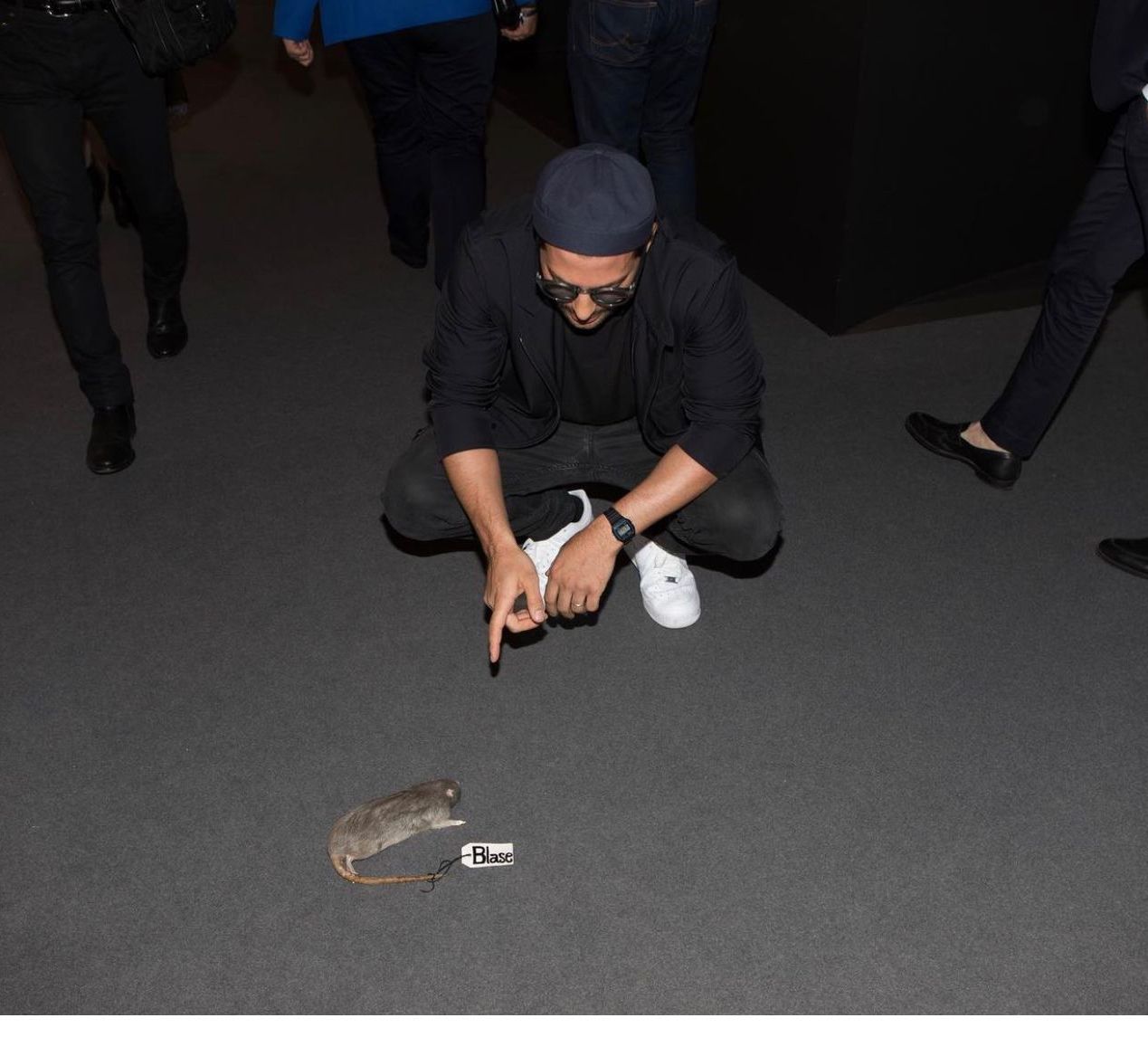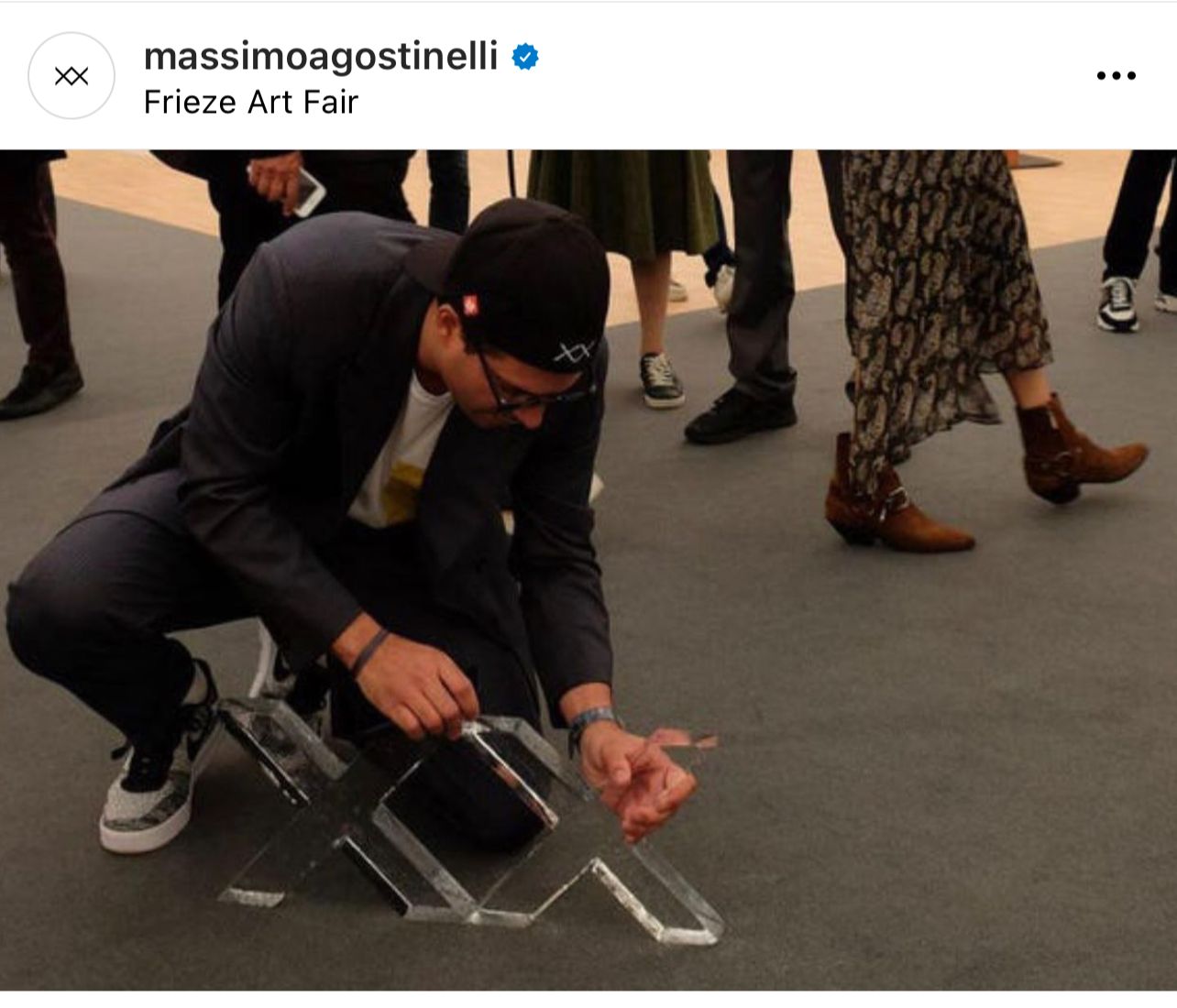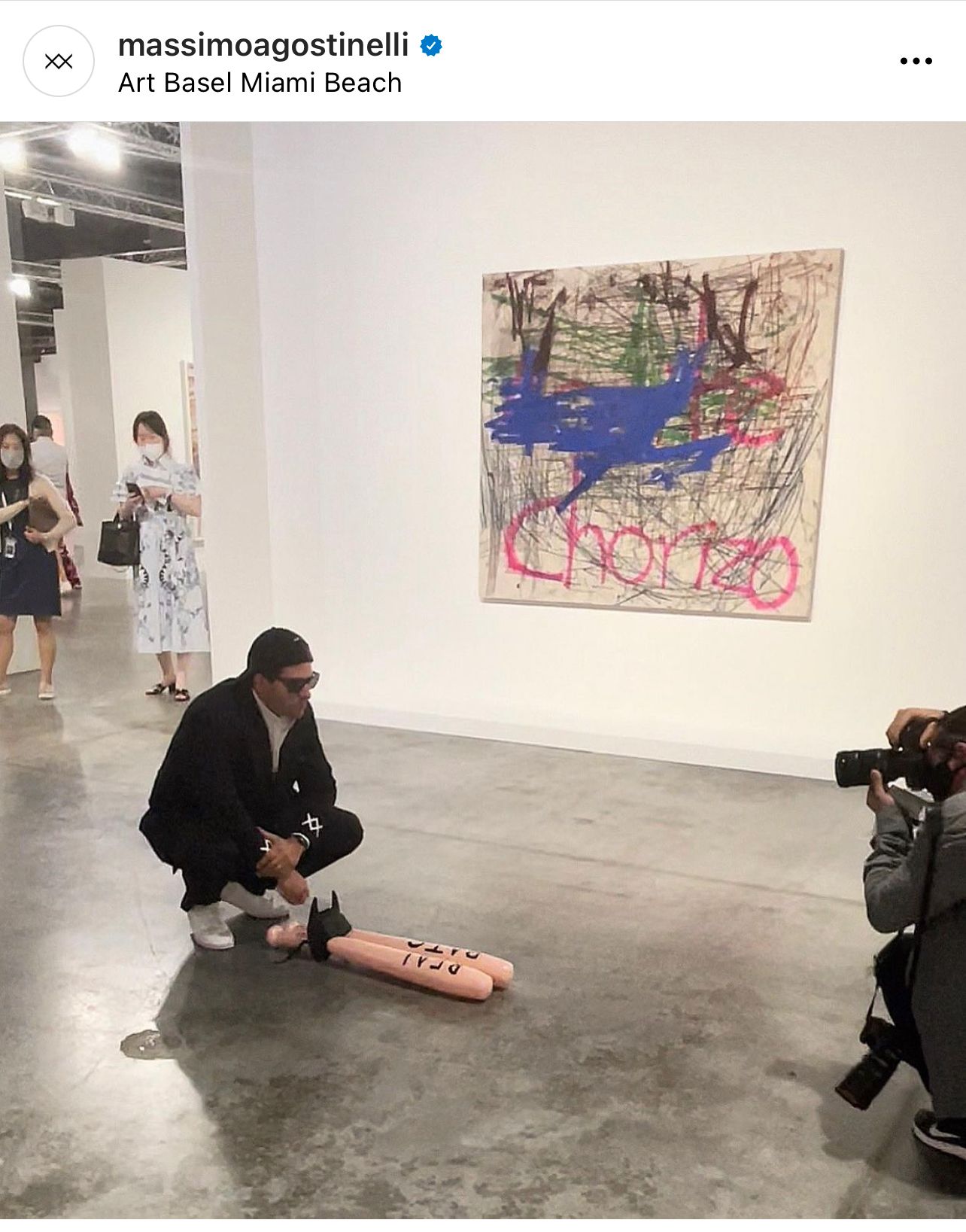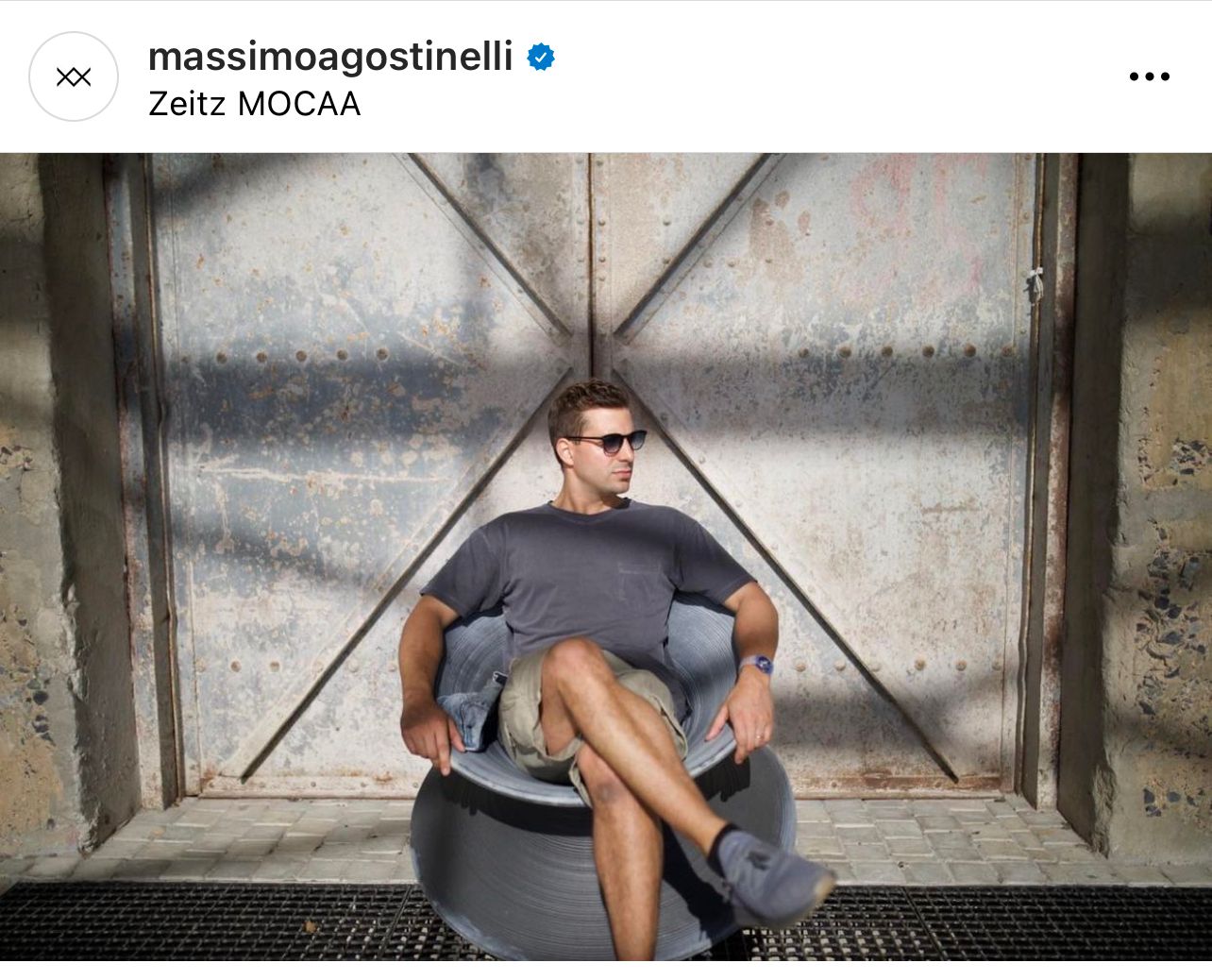
The interventionist and conceptual text artist Massimo Agostinelli (also known as Max Agos or simply by the pseudonym XX) has become synonymous with ironic statements in the art world, with acts such as depositing a massive block of translucent ice outside the entrance of Frieze art fair cementing his reputation as a toungue-in-cheek enfant terrible. Born in London to art collectors, raised in New York and now living and working in Zurich, his ascent has been somewhat stratospheric, with early works leading to him being touted as the next Ed Ruscha, and a sell-out debut show in London fast-tracking him to contemporary art-star status. He was recently selected by Simon de Pury to exhibit alongside Damien Hirst and Sterling Ruby for a philanthropically charged group exhibition at the Dallas Contemporary, curated by the legendary Neville Wakefield, and he just displayed his infamous Art Basel trashcan "La Plus Belle" at the Museo Rufino Tamayo, Mexico City. Later this year a new solo show entitled ‘Interventions’ debuts at Nahmad Projects, focusing in upon his unique appetite for disruption. Here, the artist, whose work can be found at the permanent private collection of the Alpina Gstaad and the Zeitz MOCAA (where he is a founding patron), talks to Culture Collective about the vital importance of humour in art, and explains why the world must wake up from the 'woke mind virus'...
What set you out in life on the path of an artist?
I think when you are a skeptic, you end up questioning everything, and as a child I would always carry around a sketchpad to help me reimagine what I saw and felt in visual form. Some of the first images that resonated with me were the illuminated manuscripts and iconography from churches and monasteries my mother and father would take me to in different parts of the world. I also remember vivid contrasting black-and-white luminance patterns, and colours and unlikely shapes that would standout in the plaster on the wall or ceiling, which, in one way or another, made me see everything as art.

Was your notion of art always tied to provocation?
Public art interventions collectively bring people and their respective perceptions together. The idea of reaching the unknown by chance and turning nothing into something is kind of like being an explorer in search of the next frontier. Just as entropy being emitted in any given space can transform something ordinary into something extraordinary, all stemming from a singular act. Provocation is essentially disruption, which is necessary in order to inflict change and ultimately awakening, thus challenging the status quo. I like to push things to the limit in an attempt to ask the important question; where does one draw the line?
Are you inspired by the ironic interventionist nature of art movements, such as Fluxus?
For sure, it’s certainly all connected in one way or another, from readymades by Duchamp within Dada, to experimenting with concrete poetry. I also have some early works that relate to anti-art and I think this is something worth exploring further. Humour is all too often absent in life because people take themselves way too seriously. It is a powerful tool for connection because it disarms people, allowing them to be more honest and raw.

Do you think there have been positives we can take from the global pandemic?
Yes, the pandemic gave me a profound sense of sustainability, and brought simplicity to my practice. From sourcing materials to executing ideas in a purely self-reliant manner without depending on anyone but myself, has been a game-changer for my process, because the best part is no part. It’s like the old saying goes, ‘you never know what have until it’s gone’ – well, now we also know how precious and how special it is to share time together, and I think it’s also given us appreciation to cherish this.
Why do you think we are witnessing a global trend towards more authoritarian power structures?
All extremes eventually meet at a common point, so perhaps what we’re witnessing now is simply a tipping point. I strongly believe the future of consciousness is bright but must be protected and preserved at all costs especially from the woke mind virus. Art can both reverse and accelerate trends which is why interventionism and soft power is so crucial in this disruption. I’m not sure where the world is heading but most probably somewhere better than today, and that is entirely thanks to the philosophy of thinking first principles, pioneered by Elon Musk.

Are social activism and art inextricably linked for you?
In part, I believe so, because great art is basically an act of greater truth, and fundamentally truth is beauty, but then again lies can be beautiful too. The greatest challenge for me as an artist is to overcome fear. I was able to do this when I came to the stark realisation that most things we are told or sold are quite simply a scam. If I had to summarise beauty in one word it would be “filotimo”, which is my son’s middle name.
You can follow Massimo on Instagram @massimoagostinelli